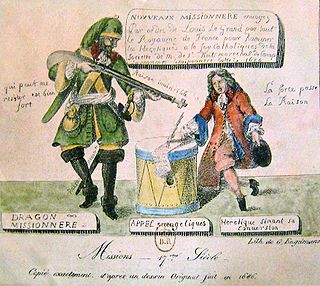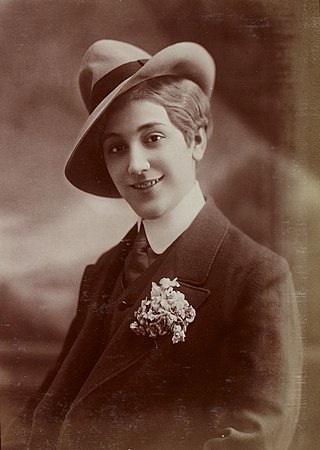
Isabelle Anne Madeleine Huppert is a French actress. Known for her portrayals of cold, austere women devoid of morality, she is considered one of the greatest actresses of her generation. With 16 nominations and two wins, Huppert is the most nominated actress at the César Awards. She is also the recipient of several accolades, including five Lumières Awards, a BAFTA Award, three European Film Awards, two Berlin International Film Festival, three Cannes Film Festival and Venice Film Festival honors, a Golden Globe Award, and an Academy Award nomination. In 2020, The New York Times ranked her second on its list of the greatest actors of the 21st century.

Claude Marcelle Jorré, better known as Claude Jade, was a French actress. She starred as Christine in François Truffaut's three films Stolen Kisses (1968), Bed and Board (1970) and Love on the Run (1979). Jade acted in theatre, film and television. Her film work outside France included the Soviet Union, the United States, Italy, Belgium, Germany and Japan.

Pierre-Claude Nivelle de La Chaussée was a French dramatist who blurred the lines between comedy and tragedy with his comédie larmoyante.

Marie-José Benhalassa, known professionally as Marie-José Nat, was a French actress. Among her notable works in cinema were the sequel films Anatomy of a Marriage: My Days with Jean-Marc and Anatomy of a Marriage: My Days with Françoise (1963), directed by André Cayatte. In 1974, she received a Cannes Film Festival Award for Best Actress for her performance in the film Violins at the Ball.

17th-century French literature was written throughout the Grand Siècle of France, spanning the reigns of Henry IV of France, the Regency of Marie de' Medici, Louis XIII of France, the Regency of Anne of Austria and the reign of Louis XIV of France. The literature of this period is often equated with the Classicism of Louis XIV's long reign, during which France led Europe in political and cultural development; its authors expounded the classical ideals of order, clarity, proportion and good taste. In reality, 17th-century French literature encompasses far more than just the classicist masterpieces of Jean Racine and Madame de La Fayette.
An overview of the history of theatre of France.

Les Indes galantes is a ballet héroïque, a type of French Baroque opera-ballet, by Jean-Philippe Rameau with a libretto by Louis Fuzelier. In its final form it comprised an allegorical prologue and four entrées, or acts, each set in an exotic place, the whole being unified around the theme of love. The work dates from 1735 except for the last entrée, which was added the following year. In 1761, however, Rameau dropped the relatively short and mildly contrasted third entrée so as to leave what is now considered the work's definitive form: Prologue; Le turc généreux ; Les incas du Pérou ; and Les sauvages . The dropped entrée was Les fleurs . Famous pieces from Les Indes galantes include the Dance of the Peace Pipe and the Chaconne, both from The Savages of North America.

Valérie Quennessen was a French theatre and film actress.
Christine Boisson is a French actress.

This "quartier" of Paris got its name from the rue de la Chaussée-d'Antin in the 9th arrondissement of Paris. It runs north-northwest from the Boulevard des Italiens to the Église de la Sainte-Trinité.

Annie Fargé was a French actress who worked for a few years on U.S. television and was named "most promising new star in a situation comedy" in 1961 when she played the title role in CBS's Angel. Especially in Europe, she was often credited as "Annie Fargue".

Catherine Jacob is a French film and theatrical actress who has won a César Award for her role in Life Is a Long Quiet River (1988), and was nominated for Best Supporting Actress in Tatie Danielle (1990), Merci la vie (1991) and Neuf mois (1994). She has been two-time president of the Lumières Award. She is known for her voice and her charisma.
Mathilda Marie Berthilde Paruta, better known as Darling Légitimus, was a French actress. In 1983, she received the Volpi Cup for Best Actress for her performance in the film Sugar Cane Alley.
Pierre Vaneck was a French actor. During his career, he won a Molière Award in 1988 and received a César Award nomination in 2009.

Christine Antoinette Charlotte Desmares, professionally known as Mlle Desmares, was a French stage actress. Scion of a notable comic actor family, she had an active stage career that spanned three decades, performing with the Comédie-Française from 1699 until her retirement in 1721; she was also remembered as a mistress of Philippe II, Duke of Orléans, Regent of France.
Anne Catherine Dangeville was a French stage actor. She was also known under her stage names Mlle Dangeville mère, Mlle Dangeville cadette or Mme Antoine.
Charles-Claude Botot, known as Dangeville was a French actor.

Events from the year 1681 in France

Aimée Campton or Miss Campton was a dancer, music hall artist, postcard beauty and a French actress of English origin. A silent film actress, she played the lead role in a series of French-made Maud films in the 1910s.
Jeanne-Catherine Gaussem, stage name Marie-Madeleine Gaussin or Mademoiselle Gaussin, was a French stage actress.












